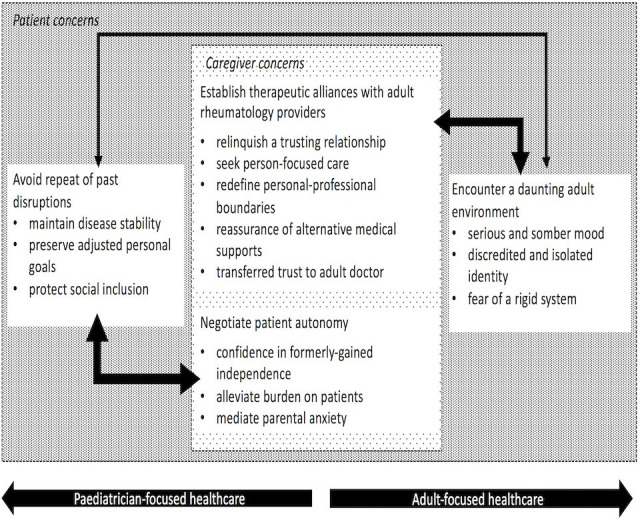Figure 1.

Thematic schema. Parents were concerned about the disease-related aspects of their child’s transition. Parents sought to protect their child’s social and personal goals by alleviating the disease burden, but simultaneously recognised more autonomy was needed as their child matured. While prior independence encouraged patients’ preparedness to maintain disease stability through transition, they were apprehensive that personal goals would be protected. Hence, there was automatic trust in adult providers when transition decisions were led by their paediatrician. Young people and parents hoped to overcome the daunting adult environment by developing a relationship with adult rheumatologists before transfer. However, limited specialist access and adult system rigidities impeded the development of a professional, person-focused alliance.
